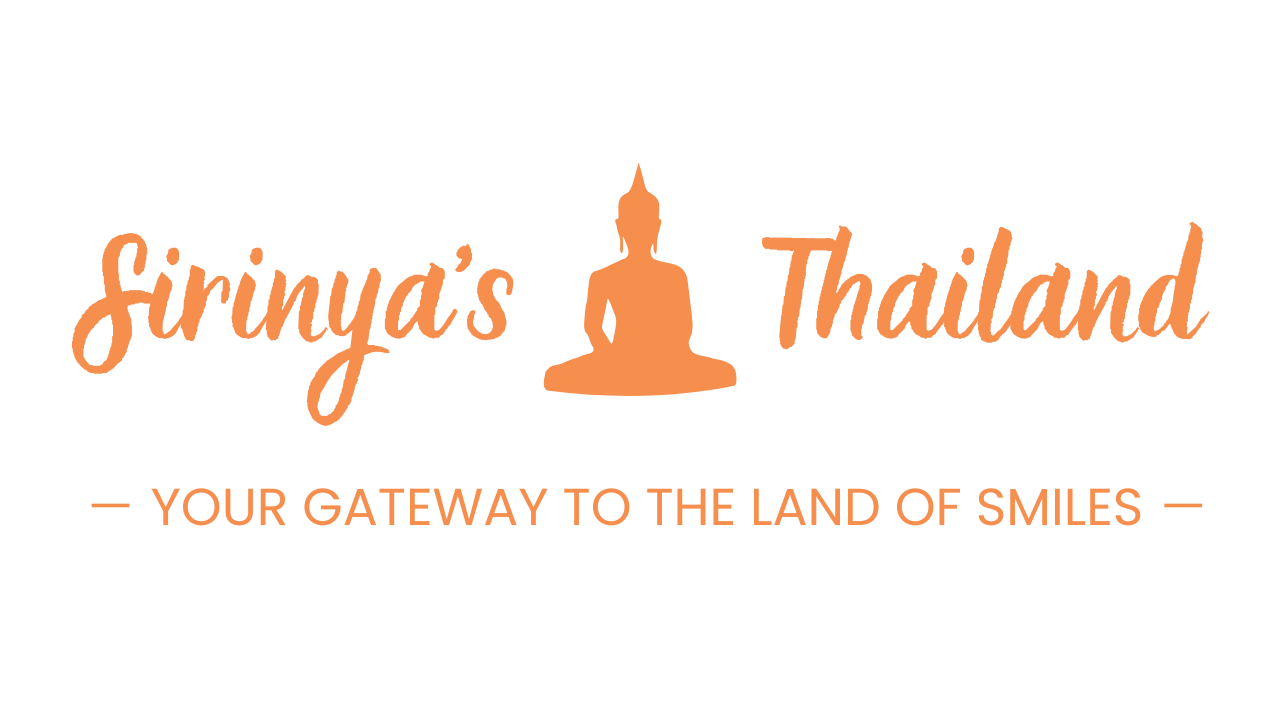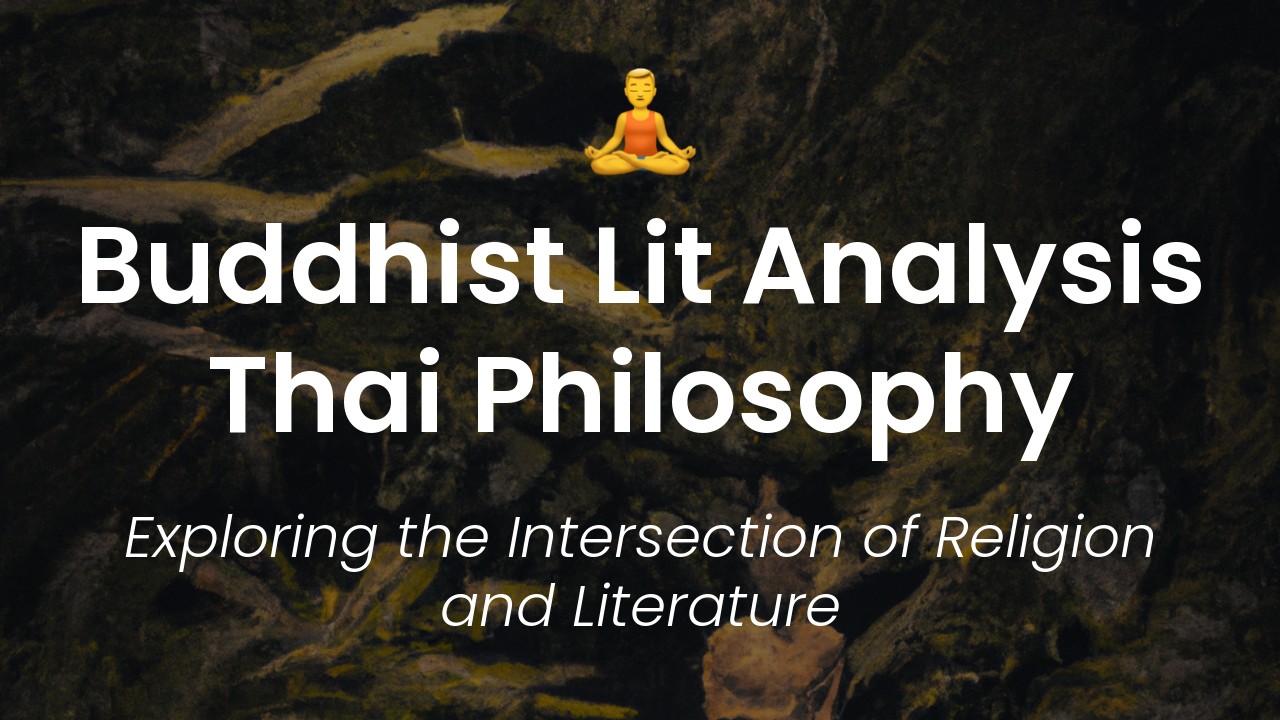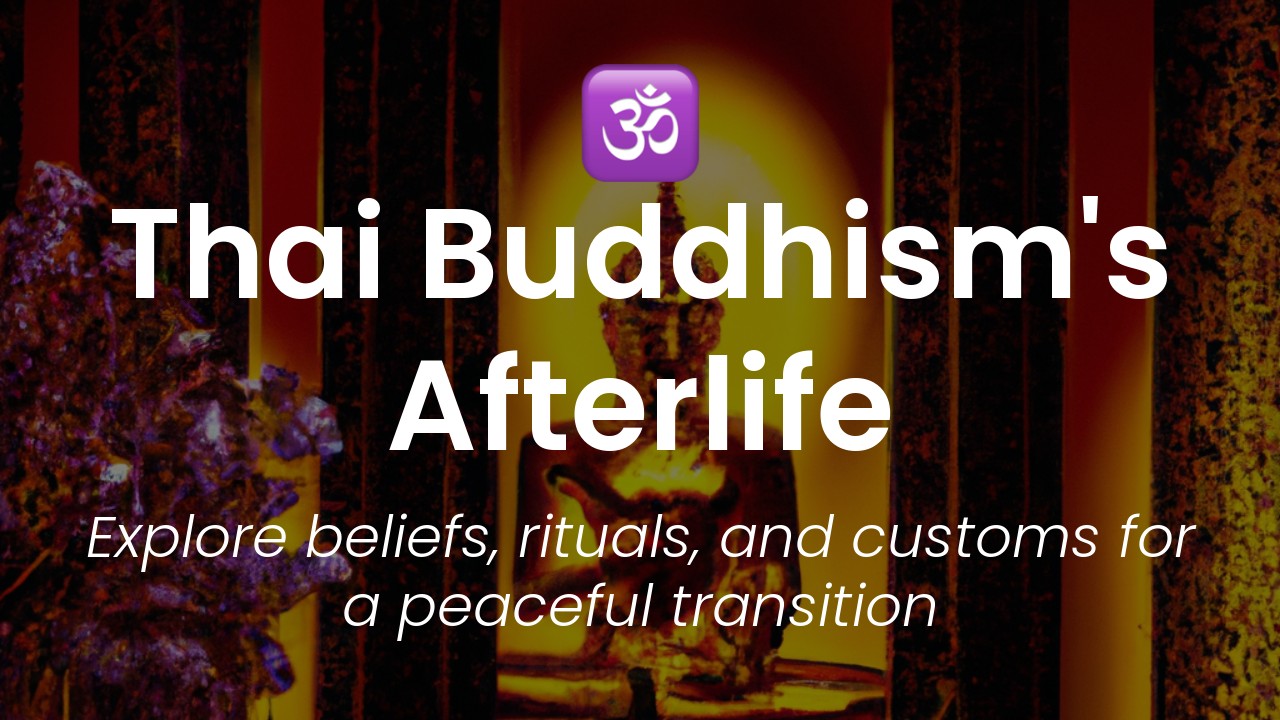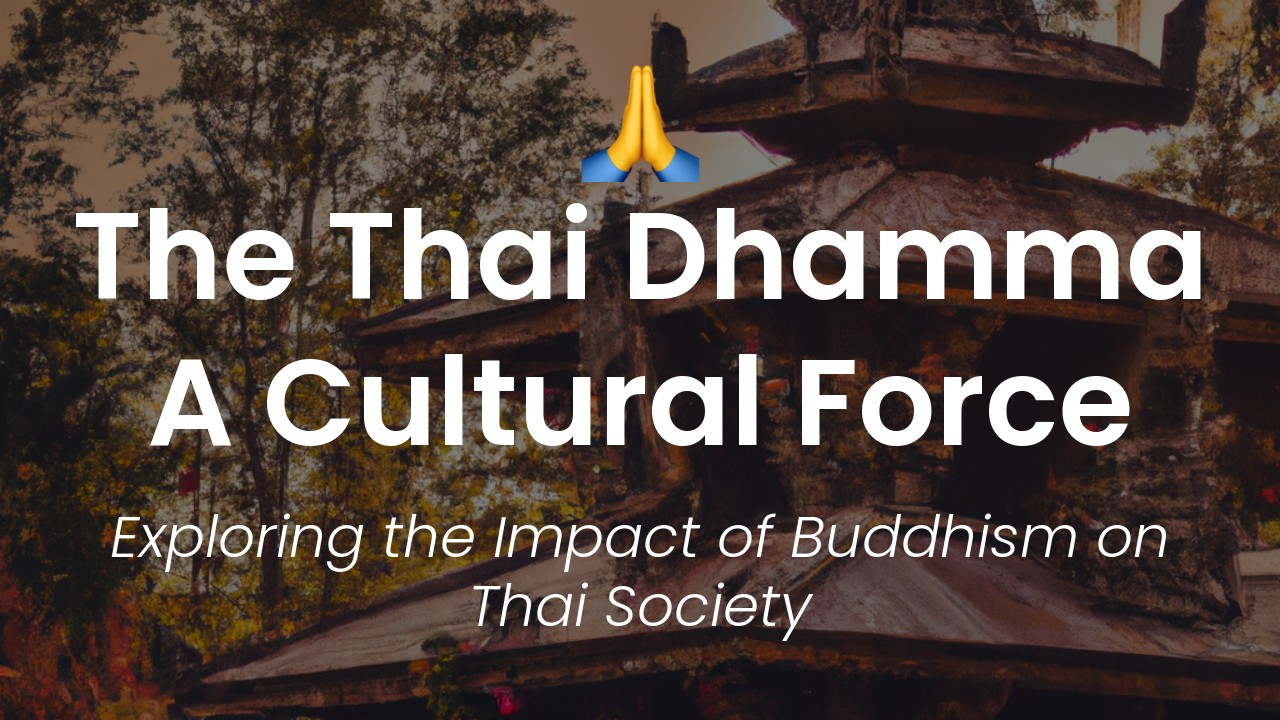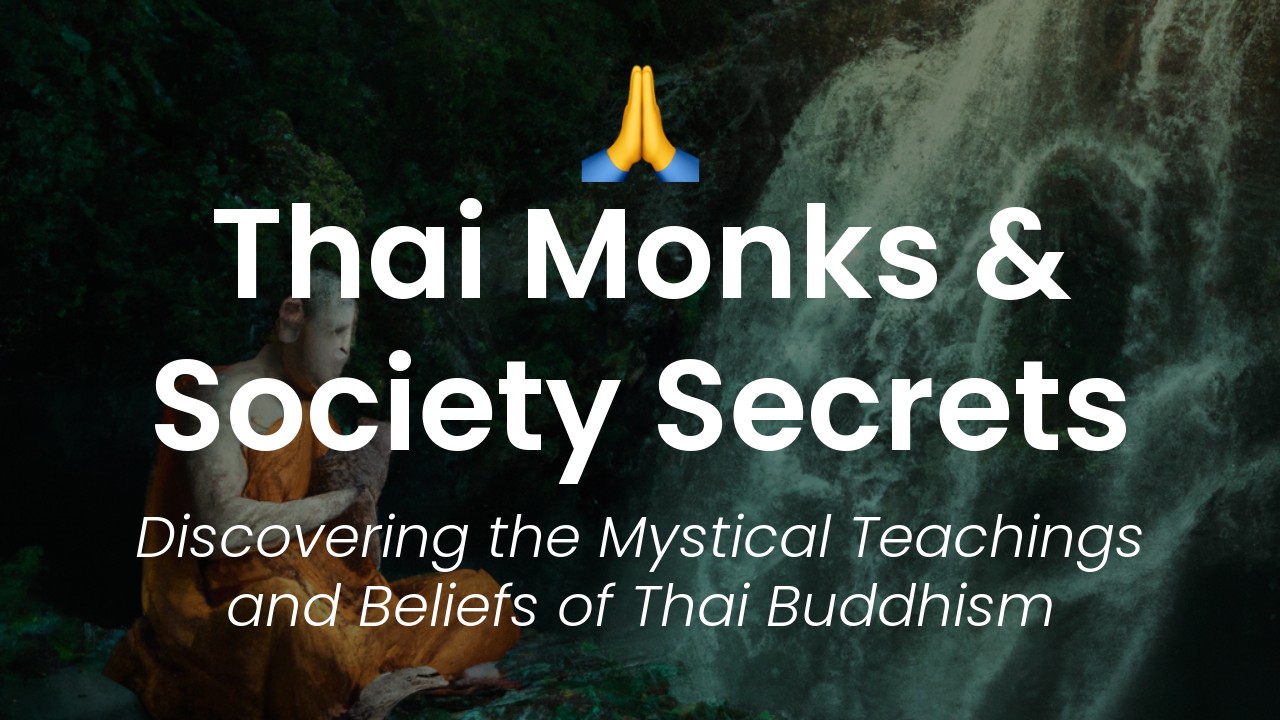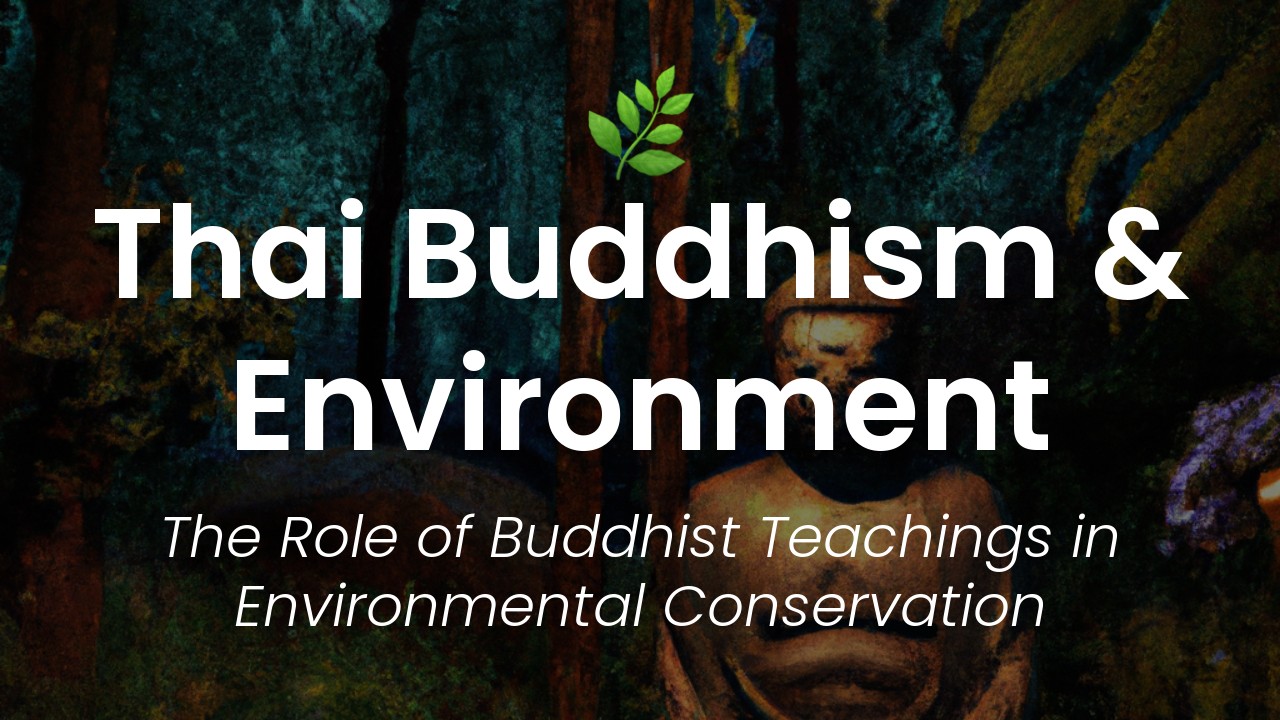Hello, my dear readers! As someone who is deeply invested in Thai culture and its literary scene, I have always found that a lot of the country's literature is imbued with Buddhist philosophy and teachings. For those unfamiliar with Thai Buddhism, it might seem puzzling at first, with its complicated lexicon and intricate moral codes.
Today, I would like to take a deep dive into this fascinating topic and unravel some of the complexities that arise when exploring Buddhist philosophy in Thai literature. From poetry to novels, short stories to memoirs, Thai literature is ripe with references to Buddhist teachings that can offer valuable insights into both the cultural and religious fabric of the country.
As someone who has studied both literature and Buddhist philosophy, I find these themes especially resonant and powerful, as they often offer profound reflections on everything from the nature of suffering to the nature of reality itself. I hope that this introduction has piqued your interest and that you will continue reading as I explore some of my favorite examples of Thai literature that exemplify these themes.
Central Tenets of Buddhism
Before we can begin exploring the presence of Buddhism in Thai literature, it’s important to have a fundamental understanding of the religion and its tenets. Buddhism is a non-deistic religion founded in ancient India that emphasizes personal spiritual development and the attainment of enlightenment. The central teachings of Buddhism are referred to as The Four Noble Truths: the truth of suffering, the truth of the cause of suffering, the truth of the cessation of suffering, and the truth of the path leading to the cessation of suffering. The ultimate goal of Buddhism is to attain Nirvana, which is the end of suffering and the release from the cycle of birth and death.
Connection to Thai Culture
Buddhism has been intricately woven into the fabric of Thai culture for centuries. In fact, Thailand is known as the most heavily Buddhist country in the world, with over 95% of the population identifying as Buddhist. The influence of Buddhism can be observed in all aspects of daily life, from the architecture of temples and pagodas to the ways in which people interact with one another.
Themes in Buddhist Literature
Buddhist literature encompasses a vast array of texts, including sutras, commentaries, and stories. Many of these works have become integral to Thai literature and culture, with themes of Buddhist philosophy permeating throughout. One such theme that is commonly explored in Buddhist literature is the concept of impermanence. This refers to the idea that all things are transient and subject to change, including our own lives. Other prevalent themes include the nature of desire and attachment, the importance of self-reflection and introspection, and the pursuit of inner peace.
Analysis of Popular Buddhist Works
There are many popular Buddhist works that have gained significant recognition in Thailand, providing insight into the teachings and philosophy of Buddhism. One such work is the Dhammapada, a collection of sayings and teachings of the Buddha in verse form. The Dhammapada covers a wide range of themes, including the nature of the mind, the importance of personal responsibility and action, and the benefits of cultivating compassion and wisdom.
Another significant work is the Jataka Tales, a collection of stories that recount the Buddha’s previous lives. Each tale contains a moral lesson, offering guidance and wisdom to readers. The Jataka Tales have had a profound impact on Thai literature, with many adaptations and retellings over the years.
Contemporary Thai Writers & Buddhism
Buddhist philosophy remains a prevalent theme in contemporary Thai literature, with many modern writers exploring and expanding upon the teachings of Buddhism. One such writer is Prabda Yoon, whose work often blends traditional Buddhist themes and motifs with contemporary issues and experiences. Another notable author is Uthis Haemamool, who has been praised for his ability to convey Buddhist philosophy in a way that is accessible and relatable to modern readers.
Conclusion: Enduring Impact of Buddhism
In conclusion, the impact of Buddhism on Thai literature and culture cannot be overstated. The religion’s emphasis on personal spiritual development, compassion, and wisdom have resonated with Thai people for centuries, influencing countless works of literature and even the daily lives of countless individuals. As Thailand continues to evolve and change, it’s clear that Buddhist philosophy will remain a significant presence, continuing to inspire and guide people on their spiritual journeys.
